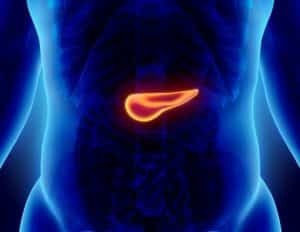Frequently Asked Questions About Pancreatic Cancer
When adult children take on family caregiving duties for their elderly parent, it is an excellent time for people of all ages to learn more about the common diseases that affect aging adults. Pancreatic cancer is the third leading cause of cancer-related deaths in the United States. However, it is not as well-known as other cancers like breast cancer or prostate cancer. In fact, the majority of adults don’t even know what the pancreas does or where in the body it is located.

Elderly Care Havertown PA – Frequently Asked Questions About Pancreatic Cancer
This lack of knowledge is dangerous because family caregivers and elderly relatives don’t know what signs to look for when it comes to pancreatic cancer. In the course of their normal elderly care routines, they could miss key signs that something is wrong with their elderly relative. Like most illnesses and diseases, early detection for prostate cancer can have a real impact on treatment and recovery.
To promote awareness for pancreatic cancer, many health centers, medical professionals and community senior service organizations put out as much information as possible about it. Family caregivers are usually the first to notice symptoms in a loved one. Some family caregivers may have a recently diagnosed relative and want to know more about their elderly care needs. Still other need the resources and support that are available as they navigate this new territory.
Here are some of the frequently asked questions and answers that are designed to educate and empower family caregivers and elderly adults.
Q: What exactly is pancreatic cancer?
A: The pancreas is a gland that secretes digestive juices to aid the body in processing food and nutrients. It also produces insulin to help regulate blood sugar as well as other hormones the body needs. When pancreas cells grow abnormally and form a tumor, it can become pancreatic cancer.
Q: Who is at risk for pancreatic cancer?
A: Pancreatic cancer is most likely to develop in elderly adults, especially over the age of 60. It is rarely found in adults under age 40. Other risk factors include a family history of pancreatic cancer or pancreatitis, obesity, smoking and a diet high in red meat. Race and ethnicity may also play a part as Ashkenazi Jews and African Americans have a higher incidence of the disease than other groups.
Q: What are some of the symptoms of pancreatic cancer?
A: The pancreas is located in the upper abdomen, in front of the spine and behind the stomach. Symptoms of pancreatic cancer include digestive issues like nausea, vomiting, indigestion and a diminished appetite. Other symptoms include abdominal pain and bloating, weight loss and jaundice. While these symptoms can also indicate any number of other health conditions, if family caregivers notice that they are increasing or lasting for a long time, it may be time for a visit to the doctor’s office.
Q: How is pancreatic cancer treated?
A: After a diagnosis of pancreatic cancer, patients will undergo surgery to remove all or part of the pancreas. Then it’s chemotherapy and possible radiotherapy to round out the treatments for pancreatic cancer.
If you or an aging loved one are considering Elderly Care Services in Havertown PA, please contact the caring staff at True Direct Home Health Care today.
- How Home Health Providers Offer Education Amidst Physical Health Changes - March 5, 2024
- Spring Activities for Seniors - February 21, 2024
- How to Help an Older Loved One with Cataracts? - February 6, 2024
